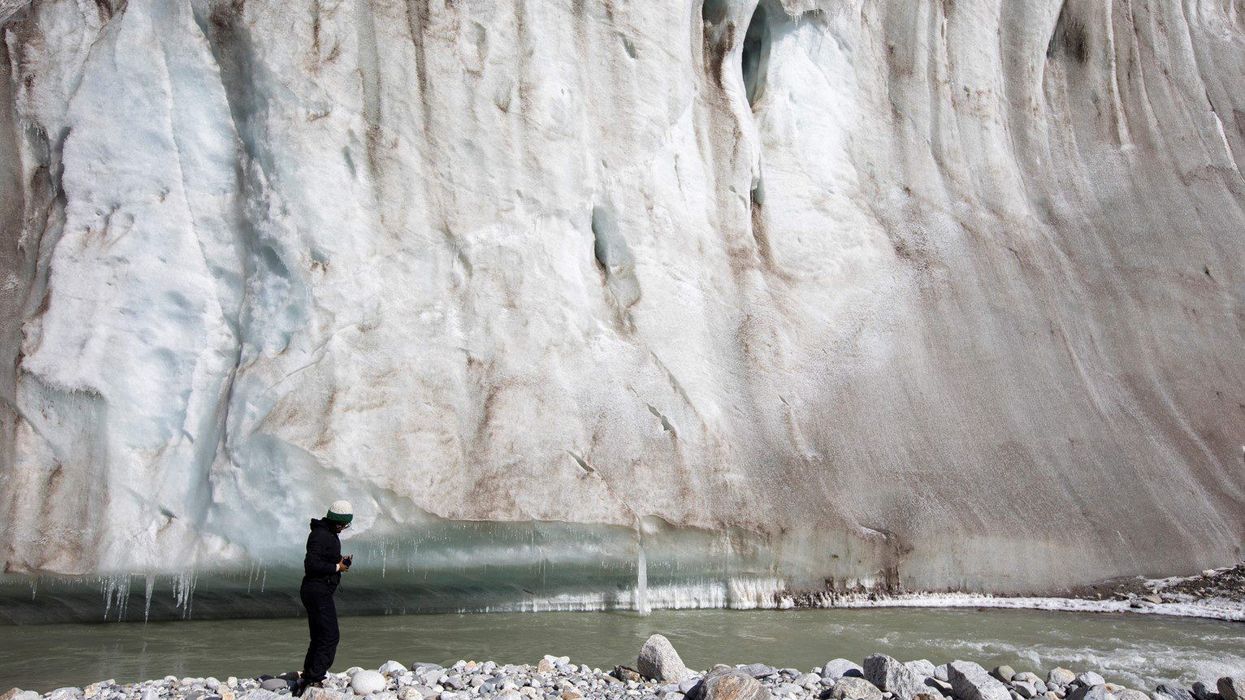GLACIERS in Asia’s Hindu Kush Himalaya could lose up to 75 per cent of their volume by century’s end due to global warming, causing both dangerous flooding and water shortages for the 240 million people who live in the mountainous region, a new report said.
A team of international scientists found that ice loss in the region, home to the famous peaks of Everest and K2, is speeding up. During the 2010s, the glaciers shed ice as much as 65 per cent faster than they had in the preceding decade, according to the assessment by the Kathmandu based International Centre for Integrated Mountain Development (ICIMOD), an intergovernmental scientific authority on the region.
“We’re losing the glaciers, and we’re losing them in 100 years’ time,” said Philippus Wester, an environmental scientist and ICIMOD fellow who was the lead author of the report.
The Hindu Kush Himalaya stretches 3,500 km (2,175 miles) across Afghanistan, Bangladesh, Bhutan, China, India, Myanmar, Nepal and Pakistan.
Glaciers in the Hindu Kush Himalaya (HKH) are a crucial water source for around 240 million people in the mountainous regions, as well as for another 1.65 billion people in the river valleys below, the report said.
The glaciers feed 10 of the world’s most important river systems, including the Ganges, Indus, Yellow, Mekong and Irrawaddy, and directly or indirectly supply billions of people with water food, energy, clean air and income.
“With two billion people in Asia reliant on the water that glaciers and snow here hold, the consequences of losing this cryosphere (a frozen zone) are too vast to contemplate,” said ICIMOD’s deputy chief Izabella Koziell.
At 1.5 degrees Celsius or 2C of warming above preindustrial temperatures, glaciers across the entire region will lose 30 per cent to 50 per cent of their volume by 2100, the report said.
But where glaciers will melt most depends on location.
At 3C of warming – what the world is roughly on track for under current climate policies – glaciers in the Eastern Himalaya, which includes Nepal and Bhutan, will lose up to 75 per cent of their ice. At 4C of warming, that ticks up to 80 per cent.
With this newfound understanding comes grave concern for the people living in the Hindu Kush Himalaya.
The report found water flows in the region’s 12 river basins, including the Ganges, Indus, and Mekong, are likely to peak around mid-century, with consequences for the more than 1.6 billion people who depend on this supply.
“While it may sound like we’ll have more water because glaciers are melting at an increased rate ... too frequently it will arise as floods instead of a steady flow,” said Wester. Past peak water, supplies will eventually dwindle.
Many high mountain communities use glacial water and snowmelt to irrigate crops. But the timing of when snow falls has become more erratic, and there’s less than there used to be.
“We’ve had … huge numbers of yak deaths because during summer they go to higher pastures,” said report co-author Amina Maharjan, a senior specialist in livelihoods and migration at ICIMOD. If the snow falls too soon, “the entire area is covered in snow and they don’t have grass to graze”.
People are now moving away from mountain communities to earn income elsewhere, she said.
Melting glaciers also pose a danger to downstream communities. Runoff pools in shallow lakes, held back by rocks and debris. The risk comes when a lake overfills, bursting through its natural barrier and sending a torrent of water rushing down mountain valleys.
Governments are trying to prepare for these changes. China is working to shore up the country’s water supplies. And Pakistan is installing early warning systems for glacial lake outburst floods.
The world has warmed an average of nearly 1.2 C since the mid-1800s, unleashing a cascade of extreme weather, including more intense heatwaves, more severe droughts and storms made more ferocious by rising seas.
Hardest hit are the most vulnerable people and the world’s poorest countries, which have done little to contribute to the fossil fuel emissions that drive up temperatures. Maharjan said communities do not have the support they need.
“Most of the adaptation is communities and households reacting (to climate events). It is inadequate to meet the challenges posed by climate change,” he said. (Agencies)




